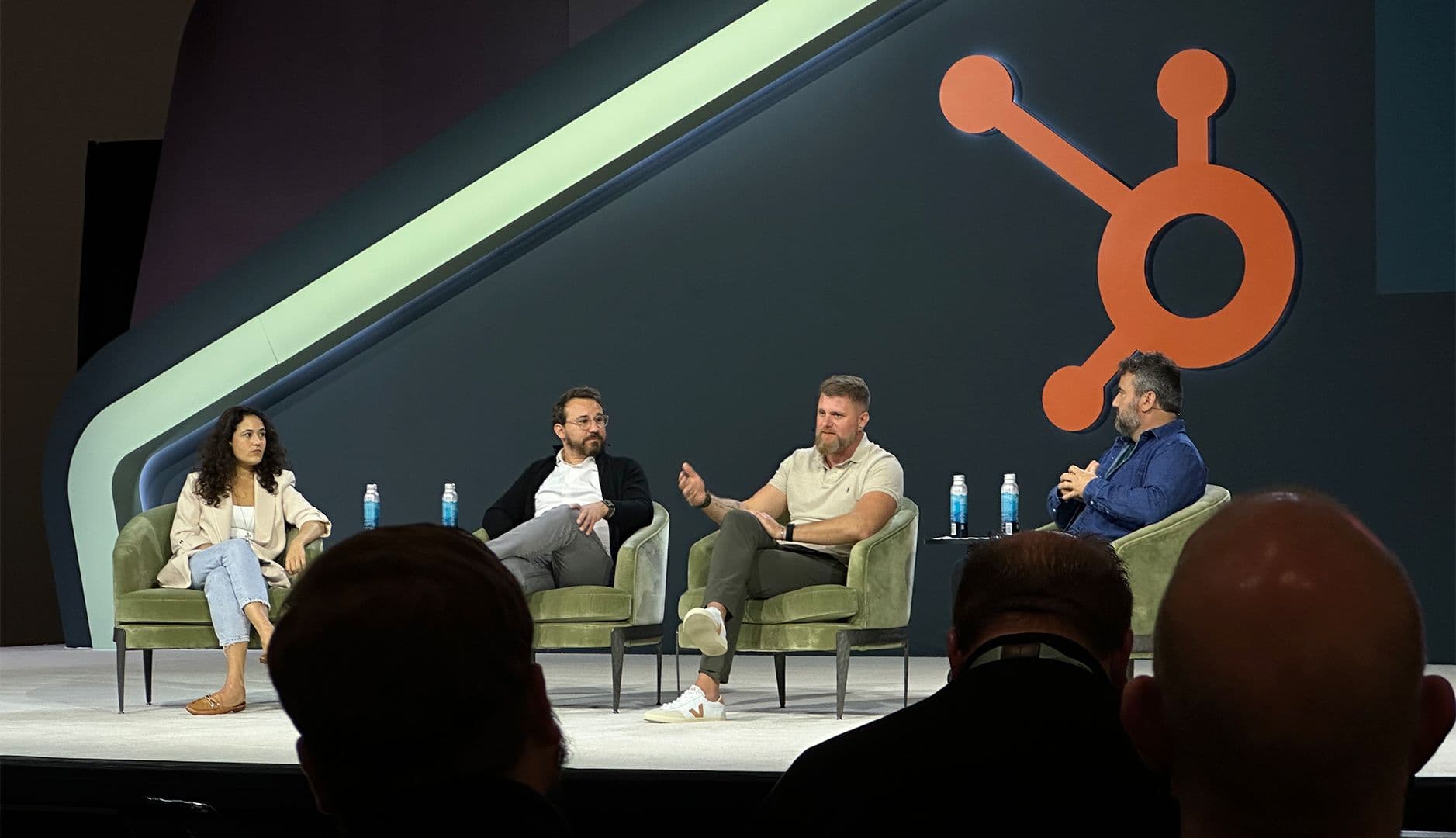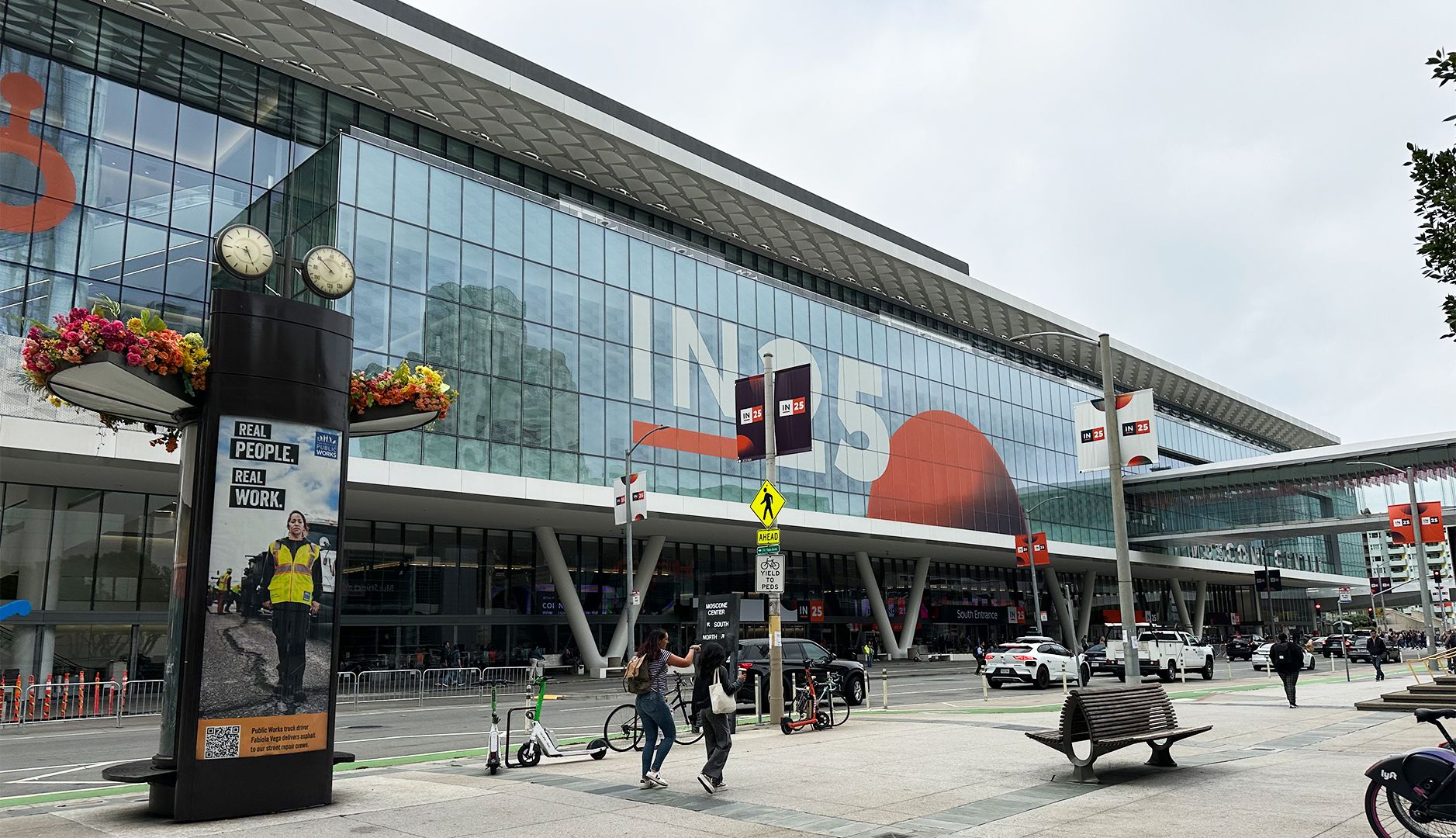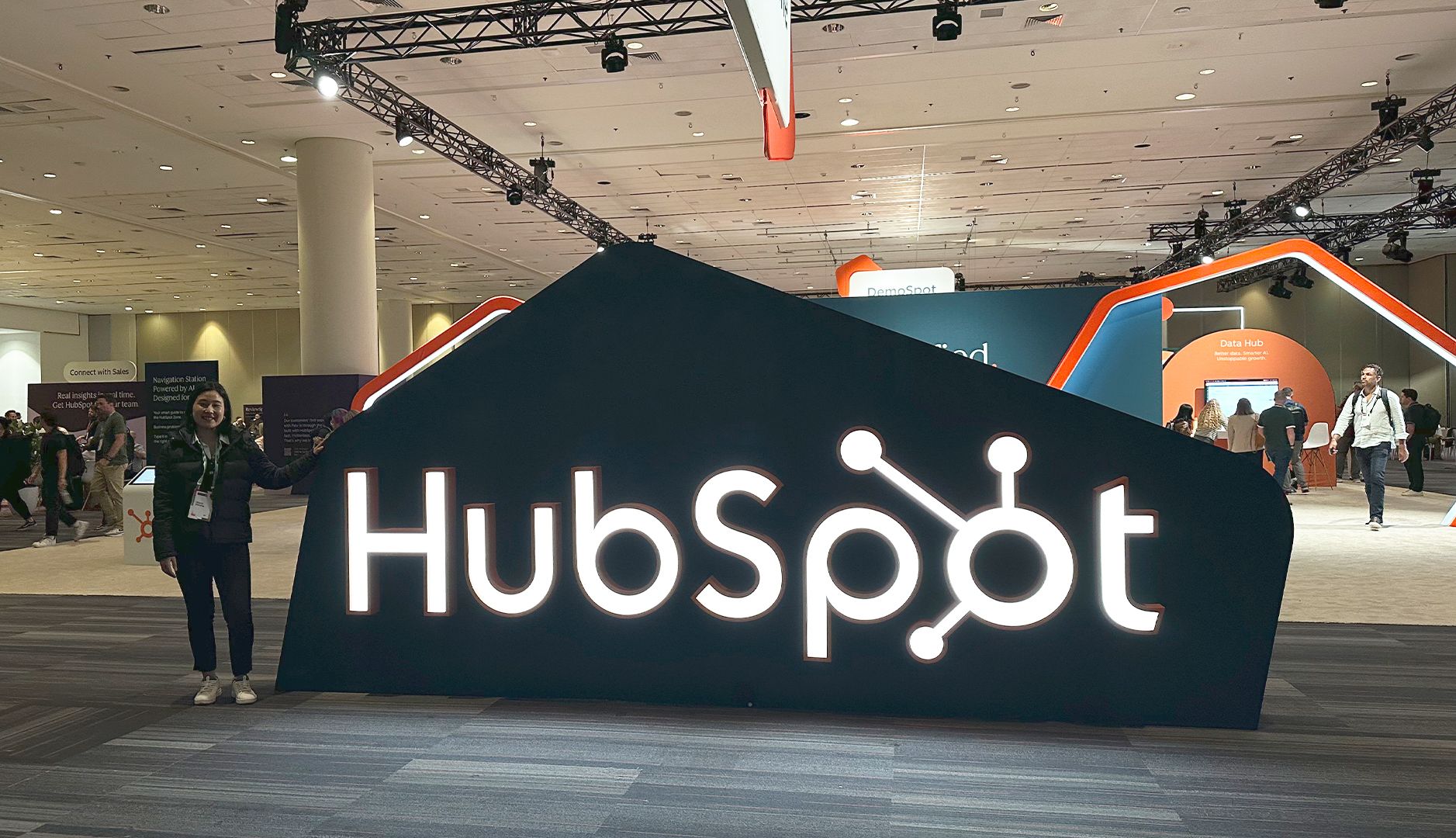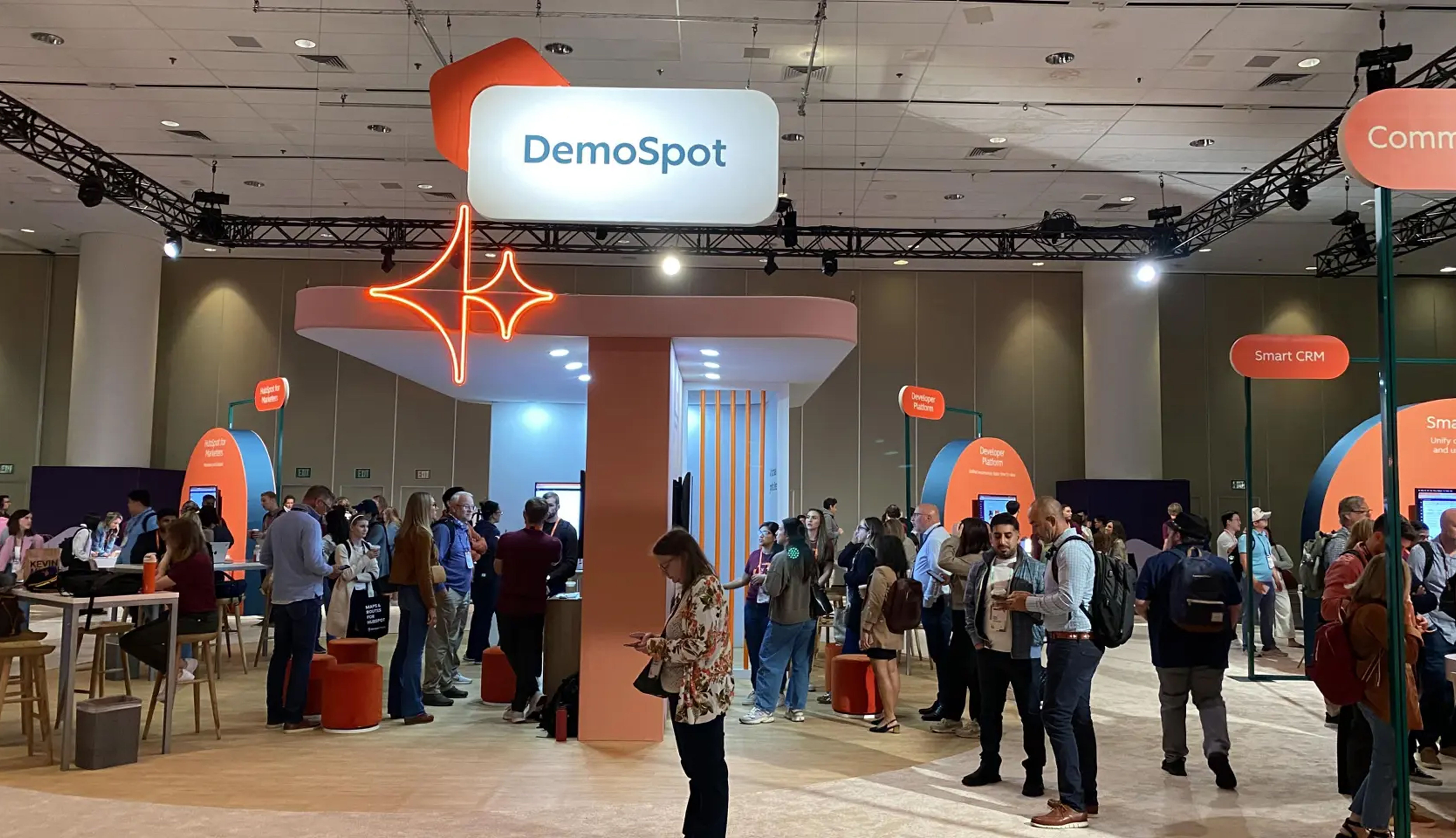Meetlabs attended INBOUND 2025 and witnessed a new era: AI agents executing complex sales tasks. Discover how they’re reshaping the conversion funnel.

In September 2025, the Meetlabs team attended INBOUND, HubSpot’s flagship event in San Francisco. One of the most disruptive themes was the rise of intelligent AI agents in the sales cycle.
Unlike traditional tools that “assist,” these agents are autonomous performers: they respond to prospects, draft emails, schedule meetings, qualify leads—and they do it all without human intervention.
We're no longer talking about copilots, but rather virtual sales teammates that learn, decide, and act.

An AI-based sales agent is a digital entity that combines natural language processing (NLP), predictive analytics, and automation to interact with leads as a human rep would—but faster and at scale.
Key features:
Unlike older-generation chatbots, these agents function in sync with human sales workflows, and they learn from every interaction.

At INBOUND 2025, Meetlabs attended key demos showing how AI agents are already operating in real-world environments—not as future promises, but as active technologies impacting the sales funnel from first contact to close. Here are the four most impactful cases:
Tango AI delivered one of the most buzzed-about demos. It simulated an inbound marketing scenario where a user fills out a form. Instantly, the Tango AI agent processed the data, matched it against ideal customer profile (ICP) criteria, accessed CRM history, generated a personalized proposal, and replied with a scheduling link—all in under 90 seconds.
The agent even detected conflicting answers from the lead and followed up with validation questions before passing the opportunity to a human. According to Tango, this flow cut the lead-to-meeting cycle by 65% in pilot companies.
CallRail showcased a powerful integration with HubSpot. Incoming calls are recorded, transcribed in real time, and analyzed using AI to determine lead qualification, intent level, and which keywords were mentioned.
Based on that, automated workflows are triggered—from personalized emails and CRM task creation to intent-based remarketing campaigns. No manual input required.
This setup transforms phone calls—often underused data sources—into automated engines for conversion and segmentation.
Docket AI took a different approach, focusing on ethics and trust in autonomous agents. They showcased how their agents use “guardrails”—semantic and structural boundaries—to prevent hallucinations or false assumptions.
Designed for lead qualification, these agents can follow up with clarifying questions, verify information, and flag conversations for review if ambiguity is detected. Docket reported a 15% increase in MQL-to-SQL conversion rates in early tests, thanks to clearer, more reliable interactions.
HubSpot introduced a new AI-powered Sales Hub suite. These smart assistants join virtual meetings to listen, auto-generate meeting notes, summarize decisions, suggest next steps, and send follow-ups.
They also identify behavioral and language patterns during meetings to catch objections or buying signals, preparing sales reps with real-time suggestions. These copilots enhance productivity, close rates, and information retention—without replacing the human rep.
Together, these four cases show that AI agents are beyond the experimental stage—they’re already delivering measurable impact in live sales environments.

Traditionally, the sales funnel has followed a linear journey: attract, convert, close, retain. While functional, this structure fragments the process into disconnected stages, each dependent on manual follow-ups.
At INBOUND 2025, we witnessed a complete reconfiguration of that structure.
AI agents break the linear funnel, replacing it with a fluid, adaptive, personalized system. Instead of waiting for a rep to check a lead, the AI evaluates in real time, detects behavioral patterns (clicks, browsing, forms, calls), and immediately decides what message to send, what action to take, or whether to escalate.
For example, if a lead attends a webinar and visits the pricing page, the agent may instantly send a tailored proposal, offer a meeting, or add the lead to a relevant nurturing sequence. All without human input, and precisely when the lead is most engaged.
These agents also learn over time, using machine learning to better predict when a prospect is ready to buy, which content works best, and what tone drives engagement.
This contextual intelligence redefines lead scoring—moving beyond static fields like company size or job title, and instead combining behavior, email engagement, and social interaction into dynamic conversion scores.
At INBOUND 2025, experts suggested we stop thinking in terms of a “funnel” and adopt a new paradigm: “The Loop”—a cyclical, intelligent, continuous system where every customer interaction informs the next, with AI as the orchestration engine for hyper-personalized sales journeys.
Adopting AI agents in sales isn't just a tech upgrade—it’s an instant competitive edge. Response speed skyrockets: while a human team may take hours to reply, an AI agent can qualify and follow up within seconds—boosting conversion rates at the most critical funnel stages.
Repetitive tasks like logging CRM data or sending follow-ups are eliminated. This frees up human reps to focus on high-value activities, like closing or building key relationships.
AI agents also scale effortlessly—handling thousands of leads simultaneously without burnout. Plus, their dynamic personalization ensures interactions are tailored to real-time behavior, not static segmentation.
In short, it’s a deep transformation of sales process efficiency, intelligence, and reach.
While AI agents bring major benefits, their rollout isn’t risk-free. At INBOUND 2025, ethical use, governance, and operational realism were key themes.
AI models can inherit undetected bias from historical data. If past sales favored certain profiles, the agent may perpetuate exclusion.
Recommendation: Regularly audit training data and build human validation into your pipelines.
Not disclosing that users are talking to AI can lead to trust issues—especially in industries where empathy is vital (e.g., healthcare, education, B2B consulting).
Recommendation: Give agents clear identities and always provide an option to talk to a human.
Even with “guardrails,” AI may produce incorrect or outdated info. A flawed proposal could damage trust.
Recommendation: Keep human checks at key points (e.g., pricing) and train models with verified, current data.
Some teams deploy AI without building internal understanding. This creates a loss of control over how agents behave.
Recommendation: Train your teams in applied AI, ethical automation, and conversation design.
Bottom line: AI in sales isn’t a plugin—it requires strategy, technical accountability, and ongoing human oversight. As INBOUND 2025 reminded us: AI should automate tasks, not relationships.

Meetlabs' experience at INBOUND 2025 revealed a clear insight: intelligent agents are rewriting the rules. They’re not passive assistants or legacy chatbots—they’re active players in the sales process, executing tasks with context, efficiency, and learning.
This new paradigm, captured by the idea of “The Loop”, erases silos between marketing, sales, and service. Every interaction powers the next. Every data point becomes a decision. And every customer gets a faster, more relevant, more human-like experience.
Tomorrow’s top reps won’t just close deals. They’ll be strategists managing intelligent agent networks—available 24/7, forget nothing, and improve with each touch.
As one INBOUND speaker put it:
"It’s not about replacing humans. It’s about freeing them to do what they do best—build trust, inspire decisions, and nurture lasting relationships.”
At Meetlabs, we’re sharing these insights with our community because knowledge should be open, actionable, and strategic. AI in sales isn’t a trend—it’s the new competitive standard.
And those who embrace it first will lead the market next.